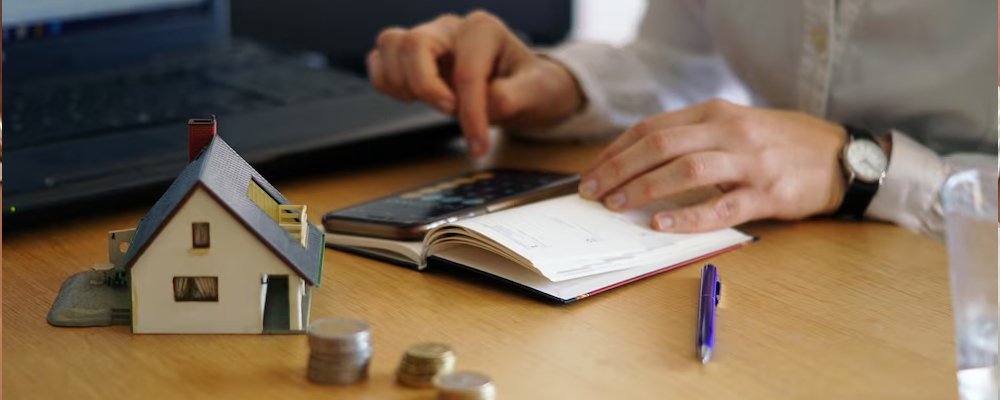Embarking on the journey of buying your first home is an exhilarating yet often complex undertaking. As a first-time home buyer, you’re likely navigating unfamiliar territory, and this comprehensive guide is designed to be your trusted companion. We’ll demystify the entire home buying process, providing you with essential real estate tips and strategies to confidently secure your dream property. From understanding your financial readiness to finally closing the deal, we’ll break down each step, ensuring a smoother and more informed experience as you navigate how to buy a house.

Why Buying Your First Home is a Smart Move
More than just acquiring a property, buying your first home represents a significant step towards building long-term wealth and establishing a secure future. For a first-time home buyer, the transition from renting to owning unlocks a multitude of benefits. You begin to build equity with each mortgage payment, essentially investing in your own asset rather than contributing to someone else’s. Furthermore, homeownership often comes with valuable tax advantages, allowing you to potentially deduct mortgage interest and property taxes. The stability of owning your own home eliminates the uncertainties of rent increases and lease renewals, providing a sense of permanence and control. Finally, as a homeowner, you have the freedom to personalize your living space, creating a home that truly reflects your unique style and needs. Understanding these advantages underscores why buying your first home is a sound financial and personal decision for any aspiring homeowner.
Step 1: Laying the Financial Foundation for Buying Your First Home

Before you even begin browsing listings, a thorough assessment of your financial readiness is paramount when buying your first home. This crucial first step for any first-time home buyer will determine your affordability and guide your entire home buying process.
Evaluating Your Credit Score: A Cornerstone of Buying Your First Home
Your credit score is a critical factor lenders consider when you’re buying your first home. It reflects your creditworthiness and repayment history. A good credit score, typically 620 or higher, is generally required, but aiming for 740 or above can unlock the most favorable mortgage rates. As a first-time home buyer, understanding the impact of your credit score on your loan terms is essential.
Determining Your Debt-to-Income Ratio (DTI) for Buying Your First Home
Lenders use your Debt-to-Income (DTI) ratio to assess your ability to manage monthly mortgage payments alongside your other financial obligations when you’re buying your first home. Ideally, your total DTI should be below 43%, with the housing portion (including principal, interest, taxes, and insurance) ideally below 28% of your gross monthly income. This is a key metric in the home buying process.
Setting a Realistic Budget for Buying Your First Home
Before you get carried away with dream homes, establish a clear budget for buying your first home. Utilize the 28/36 rule as a guideline: allocate no more than 28% of your gross monthly income to housing costs and no more than 36% to total debt. This crucial step for a first-time home buyer ensures you’re looking at properties within your financial reach.
Saving for a Down Payment and Closing Costs When Buying Your First Home
While a 20% down payment is often cited, many loan programs for first-time home buyers allow for down payments as low as 3-5%. However, don’t forget to factor in closing costs, which typically range from 2-5% of the purchase price. Being financially prepared with sufficient savings is a cornerstone of successfully buying your first home.
Step 2: Securing Your Financing: Getting Pre-Approved for Your First Home Mortgage

Obtaining pre-approval for a mortgage loan is an absolutely essential step when buying your first home. It provides clarity on what you can afford and demonstrates to sellers that you are a serious and qualified first-time home buyer. This significantly strengthens your position in the home buying process.
Essential Documents for Mortgage Pre-Approval When Buying Your First Home
When seeking pre-approval for buying your first home, lenders will require various financial documents to assess your creditworthiness and income stability. Be prepared to provide recent pay stubs, bank statements, tax returns, and identification documents. Gathering these documents early will streamline the pre-approval process for a first-time home buyer.
Understanding Different Mortgage Types for Your First Home Purchase
As a first-time home buyer, understanding the different types of mortgage loans available is crucial. Common options include conventional loans (best for those with strong credit), FHA loans (ideal for lower credit scores or smaller down payments), VA loans (for veterans and active military), and USDA loans (for rural properties). Exploring these options is a key part of learning how to buy a house.
Step 3: Partnering with an Expert: Hiring a Real Estate Agent for Your First Home

Navigating the complexities of buying your first home becomes significantly smoother with the guidance of a knowledgeable real estate agent. They act as your advocate throughout the entire home buying process, offering invaluable expertise and support to a first-time home buyer.
Choosing the Right Real Estate Agent for Your First Home Journey
When buying your first home, selecting the right real estate agent is paramount. Look for an agent with extensive experience in your desired local market, read online reviews and testimonials, and ask for referrals from friends and family. Interview multiple agents to find someone who understands your needs and communicates effectively, making your home buying process less daunting.
Step 4: Starting Your Search: Finding the Right First Home
With your finances in order and a trusted real estate agent by your side, it’s time to begin the exciting process of searching for your first home. This stage involves clearly defining your needs and wants as a first-time home buyer and actively exploring available properties.
Defining Your Needs and Wants When Buying Your First Home

Before diving into listings, take the time to clearly define your essential needs and desirable wants in your first home. Consider factors such as location, number of bedrooms and bathrooms, home size and layout, school districts, commute times, and outdoor space. This focused approach will streamline your home buying process.
Attending Open Houses and Private Showings During Your First Home Search
Actively participate in the search for your first home by attending open houses and scheduling private showings with your agent. Visiting multiple properties allows you to get a feel for different layouts, neighborhoods, and values. Keep a checklist and take photos to help you compare properties during your home buying process.
Step 5: Making a Competitive Offer on Your First Home

Once you’ve found the perfect property, the next critical step in buying your first home is making a competitive offer. This requires careful consideration and the strategic guidance of your real estate agent.
Understanding the Components of a Real Estate Offer for Your First Home
When making an offer on your first home, understand the key components involved. This includes the offer price, the earnest money deposit (a sign of your seriousness), any contingencies (such as inspection, financing, and appraisal), and the proposed closing date. Your agent will guide you through crafting a strong offer during this stage of the home buying process.
Relying on Your Agent’s Expertise to Craft a Strong Offer on Your First Home
Your real estate agent plays a crucial role in helping you craft a competitive offer when buying your first home. They will utilize a comparative market analysis (CMA) to assess recent sales of similar properties in the area, ensuring your offer is both attractive to the seller and aligned with market value. A well-crafted offer significantly increases your chances of acceptance as a first-time home buyer.
Step 6: Due Diligence: Conducting Inspections and Appraisals for Your First Home
After your offer is accepted, the next crucial steps in buying your first home involve conducting thorough inspections and ensuring the property’s value aligns with your offer through an appraisal. This due diligence protects your investment as a first-time home buyer.
The Importance of a Home Inspection When Buying Your First Home
Hiring a licensed home inspector is a critical step when buying your first home. The inspector will thoroughly examine the property’s structure and systems, identifying any potential issues with the roofing, foundation, plumbing, electrical, HVAC, and signs of pests or water damage. This detailed inspection can reveal costly problems and provides an opportunity for renegotiation or withdrawal from the deal during the home buying process.
The Role of a Home Appraisal in Your First Home Purchase
Your lender will require a home appraisal when you’re buying your first home to ensure the property’s market value justifies the loan amount. A licensed appraiser will assess the home’s condition, size, features, and recent comparable sales in the area. If the appraisal comes in lower than your offer, you may need to renegotiate with the seller or cover the difference to proceed with buying your first home.
Step 7: The Final Steps: Closing the Deal on Your First Home

You’re in the final stretch of the home buying process! Closing day marks the culmination of all your efforts in buying your first home.
The Final Walkthrough Before Closing on Your First Home
Before the official closing, you’ll conduct a final walkthrough of the property to ensure any agreed-upon repairs have been completed and the home is in the condition stipulated in your purchase agreement. This last check provides peace of mind before you finalize buying your first home.
Reviewing the Closing Disclosure for Your First Home Purchase
Carefully review the Closing Disclosure, a document detailing your loan terms, monthly payments, and all closing costs associated with buying your first home. Compare this document to your initial Loan Estimate to ensure accuracy and understand all the financial obligations involved in becoming a first-time home buyer.
Preparing for Closing Day When Buying Your First Home
On closing day, be prepared to bring a government-issued ID, a certified check or proof of wire transfer for your closing costs, and proof of homeowners insurance. You will sign numerous legal documents, officially transferring ownership of the property to you. Congratulations – you’ve successfully navigated how to buy a house and are now a homeowner!
Step 8: Post-Purchase Tips for First-Time Home Buyers

The journey doesn’t end after you’ve finished buying your first home. Wise management of your new investment is crucial for long-term success as a first-time home buyer.
Securing and Setting Up Your New Home After Buying
Immediately after buying your first home, take steps to secure your property by changing locks and security codes. Set up essential utilities and internet services and update your address with relevant institutions and subscriptions.
Filing for Homestead Exemption After Buying Your First Home
Many states offer a homestead exemption, which can reduce your property taxes on your primary residence. Research and file for this exemption with your local tax office after buying your first home to potentially lower your ongoing housing costs.
Creating a Maintenance Plan for Your First Home Investment
Protect your investment after buying your first home by establishing a regular maintenance plan. This includes tasks like cleaning gutters, checking the roof seasonally, servicing HVAC systems annually, and addressing any repairs promptly to prevent more significant and costly damage down the line. Proactive maintenance ensures the long-term value and enjoyment of your first home.
“By following this comprehensive guide, you’ll be well-equipped to navigate the exciting journey of buying your first home with confidence and knowledge. Remember to take each step methodically, seek expert advice when needed, and enjoy the process of finding the perfect place to call your own.”

